Change Begins with Shopping
Embrace Bulk Shopping
As a young professional who recently started working, I deeply understand the importance of being frugal. For the past six months, I've been trying to buy bulk foods and found that it not only saves money but is also particularly environmentally friendly. Every time I go to the supermarket and see those over-packaged goods, I feel it's such a waste. A package of nuts might use three layers of packaging: an outer printed bag, an inner vacuum bag, and sometimes even individual small packages. All these packages can only be thrown away after use, which is painful to think about.
Since I started buying bulk foods, my life has changed significantly. I remember the first time I brought glass jars to buy rice at the grain store, the owner praised my environmental awareness. Bulk rice is not only fresher but also much cheaper. A 5-pound bag of packaged rice used to cost 35 yuan, now buying it in bulk only costs around 28 yuan. Over a month, I can save twenty to thirty yuan just on rice. That's enough for two lunches!
Not just rice, I now choose bulk options for nuts, dried fruits, and tea. Once at a traditional tea shop, chatting with the owner, I learned that bulk tea is not only cost-effective but also allows you to taste and select according to your preferences. In comparison, the packaging costs of those beautifully packaged teas might account for over 30% of the total price.
The most exciting discovery was finding a zero-waste store. The store sells everything from daily necessities to food ingredients, all in bulk. On my first visit, I saw other customers bringing various containers for shopping, including glass jars, stainless steel boxes, and canvas bags. That feeling was particularly warm, like joining a community of like-minded people.
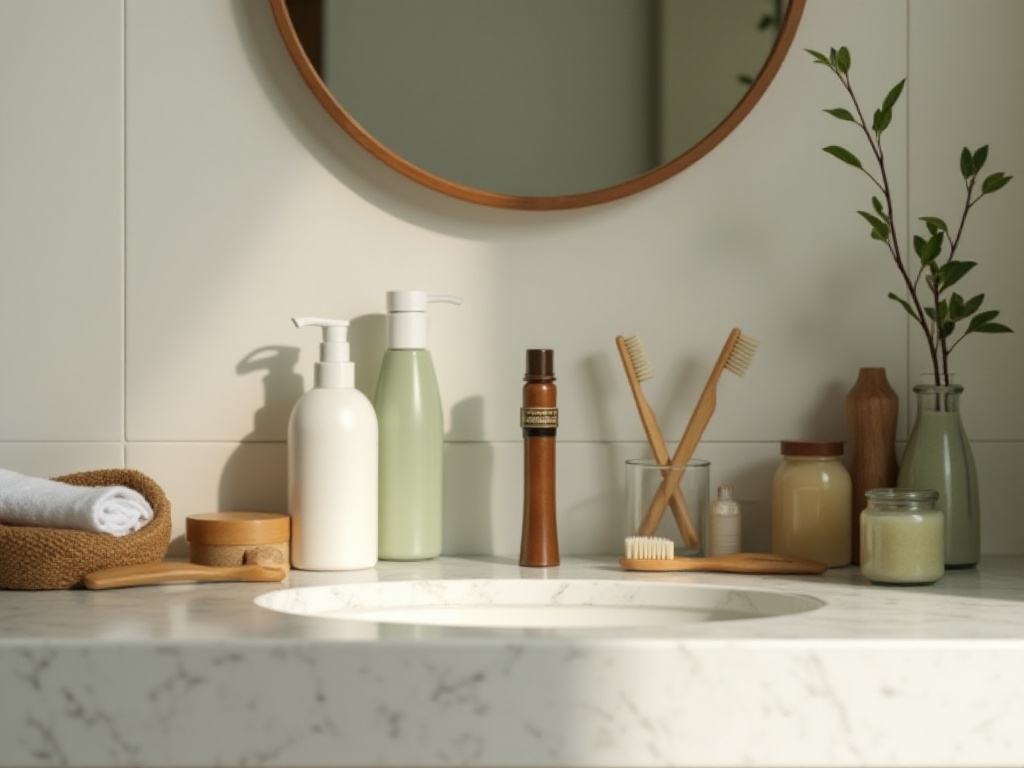
Essential Carry-Along Equipment
Now my bag always contains several reusable shopping bags, which have become my standard equipment. Honestly, I often forgot to bring them at first, but gradually it became a habit. My favorite is a French net bag that still looks new after almost a year of use. These net bags can hold many items and are particularly light, rolling up to just palm size when empty.
Once when I used this net bag at the supermarket to buy fruits, the cashier specifically praised my environmental consciousness. She said she uses hundreds of plastic bags every day, which pains her to see. Indeed, a plastic bag is used for just a few minutes before being discarded, but takes hundreds or even thousands of years to decompose. Thinking about this strengthens my determination to continue using eco-friendly shopping bags.
Besides the net bag, I've prepared canvas bags of different sizes. Large ones for heavy items like rice and flour, small ones for miscellaneous items. These canvas bags are all pure cotton, making them not only durable but also easy to wash. Plus, many canvas bags now have fashionable designs, making them quite stylish to carry.
To avoid forgetting shopping bags, I've developed my own set of tricks. For example, I keep folding shopping bags at my doorway and office desk, set reminders on my phone for "bring shopping bags," and place shopping bags next to my keys. This way, even if I occasionally forget, I have backups available.
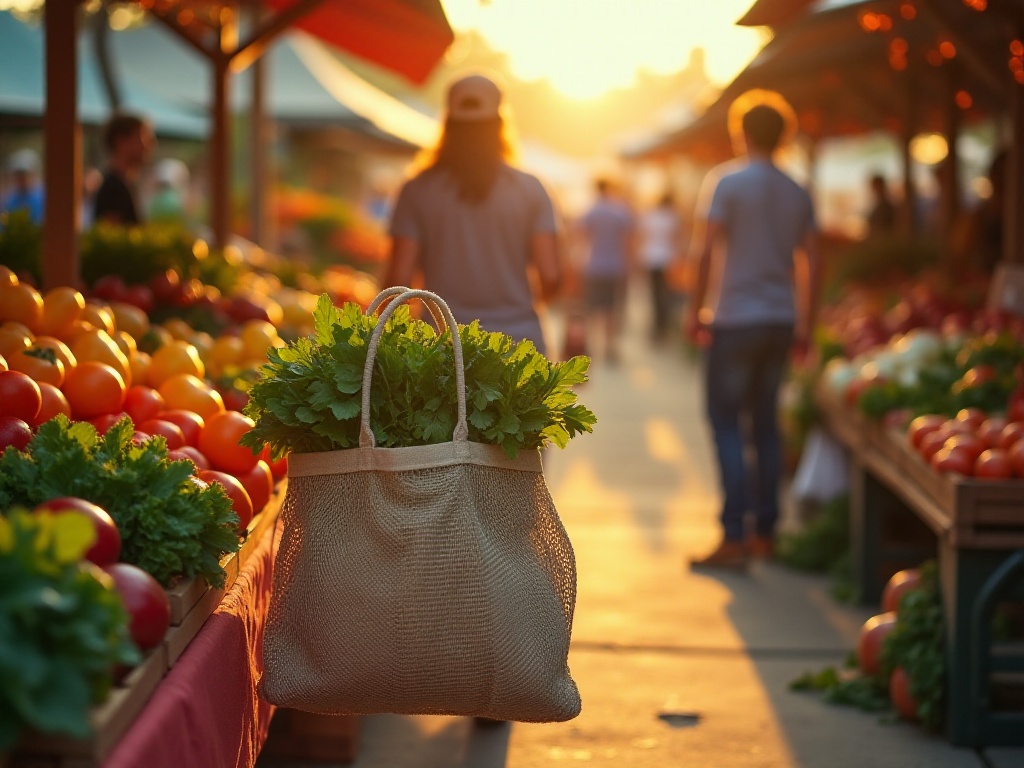
Support Local Shops
I used to think shopping at large supermarkets was more convenient and modern, but recently I've fallen in love with visiting local shops and farmers' markets. I remember my first time at the farmers' market, watching the vendor skillfully trim leeks and remove veins from cabbage - that kind of personal touch is something you'll never experience in supermarkets.
Buying vegetables at the farmers' market is not only fresher but also particularly environmentally friendly. Supermarket vegetables and fruits are all wrapped in plastic film and boxes, which looks very unsustainable. At the farmers' market, you can completely use your own net bags or cloth bags to carry vegetables. At one vegetable stall I frequent, the owner always gives me extra green onions because I bring my own shopping bags every time.
Moreover, shopping at local stores often leads to unexpected discoveries. For example, at a grocery store I often visit, the owner collects second-hand glass bottles, cleans them, and sells them at low prices to customers who need them. This not only helps the environment but also helps those who want to start a zero-waste lifestyle.
Once at the grain store, I saw an elderly lady bringing a vintage enamel container to buy oil. The owner said this grandmother had been doing this for several years, always bringing her own containers and never using plastic bags. Hearing this touched me deeply, showing that environmental awareness knows no age limits.
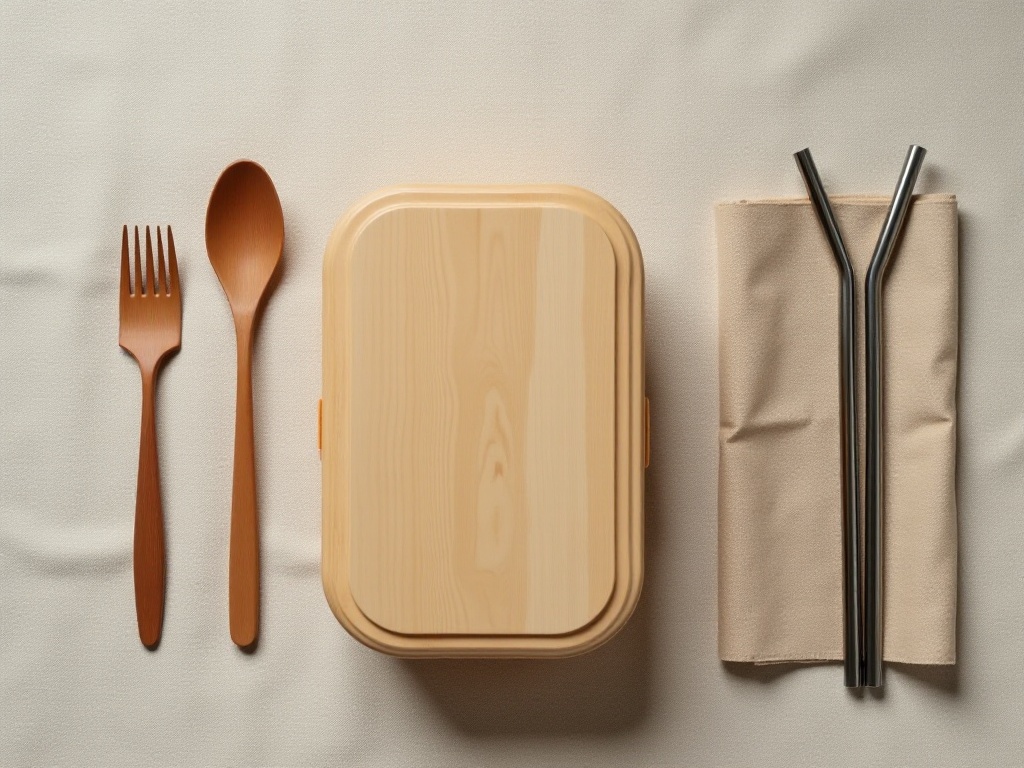
Home Transformation
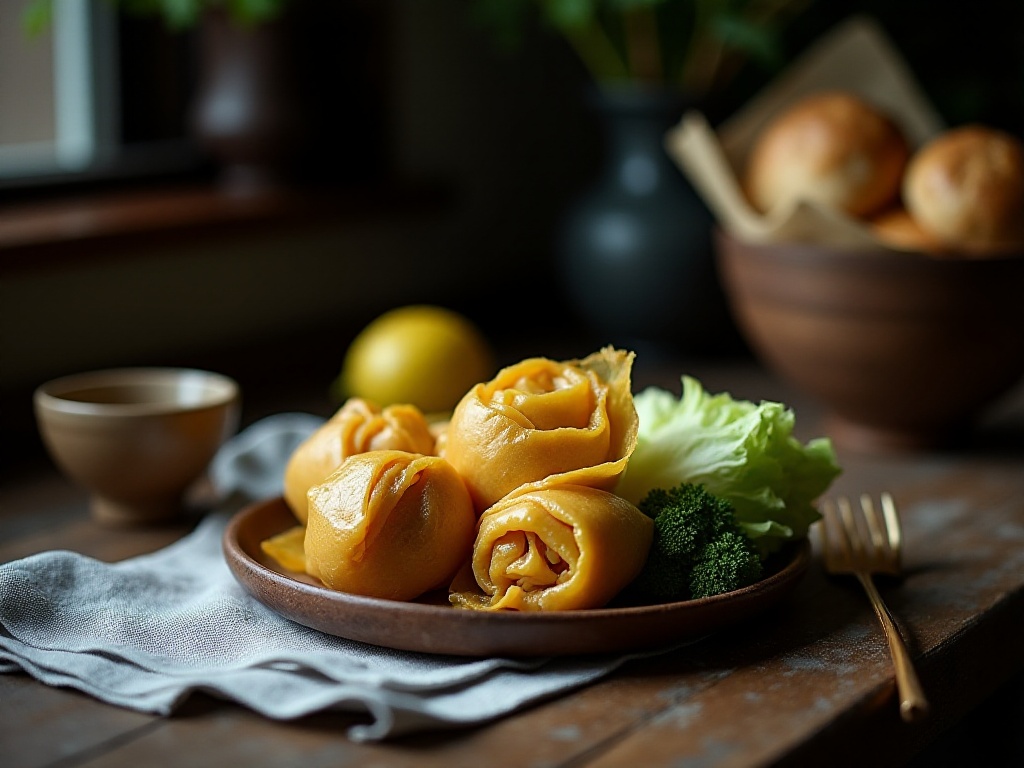
Kitchen Revolution
The kitchen was definitely where my home generated the most waste, but after six months of transformation, the situation has improved significantly. The most obvious change was replacing plastic wrap with beeswax wraps. When I first started using beeswax wraps, it felt quite unfamiliar, as if they weren't as airtight as plastic wrap. But after using them for a while, I discovered that beeswax wraps not only preserve food well but are also easy to clean with just a water rinse.
I bought my beeswax wraps from a local workshop, they have cute patterns and are reasonably priced. One beeswax wrap can last about a year, which saves quite a bit of money compared to using plastic wrap daily. Plus, beeswax wraps are made from natural materials, making them healthier for our bodies.
Speaking of kitchen transformation, what I'm most proud of is the composting system I set up on the balcony. It's just a simple plastic box with small holes drilled in the bottom for drainage. Every day I put in organic waste like fruit peels, vegetable leaves, and coffee grounds, then sprinkle some dried leaves or paper scraps, and the results have been surprisingly good.
When I first started composting, I was worried about odors. But as long as you maintain the right wet-dry ratio, there's actually no smell at all. After three months, this kitchen waste turns into black, loose fertilizer. The pothos I grew with this fertilizer is thriving, and friends who visit say I have a green thumb.
To better handle kitchen waste, I specifically learned some tips. For example, noodle cooking water can be used to water plants, coffee grounds can eliminate odors, and dried eggshells ground into powder make excellent fertilizer. Gradually, I've come to enjoy this way of life where everything is put to good use.
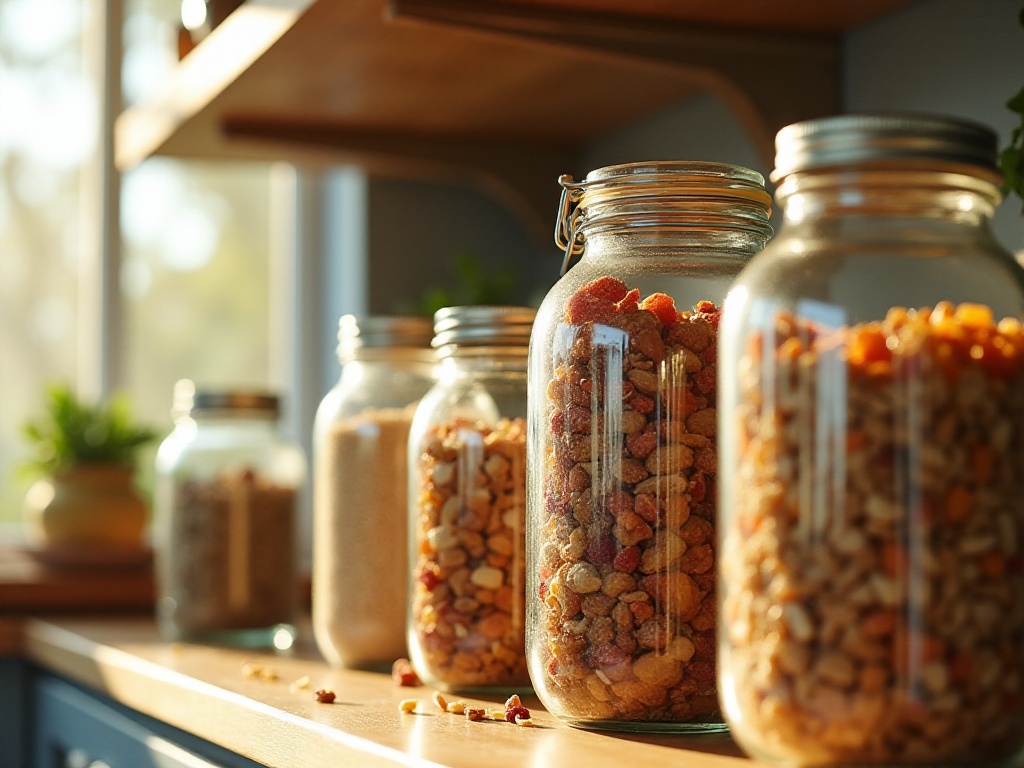
Establishing a Recycling System
Waste sorting is challenging for many people, but it's not difficult once you establish a suitable system. I placed sorting bins in different areas of my home - a wet waste bin in the kitchen, a paper recycling box in the study, and a recyclables collection box in the living room. This way, I don't have to run back and forth every time I throw something away.
Particularly worth mentioning is my paper recycling system. I've dedicated a corner in my study with three boxes: one for single-sided printed paper that can be reused on the back, one for paper that can't be reused and will be recycled periodically, and one for items like envelopes and wrapping paper that can be reused.
There's also a dedicated repair area at home with various tools and spare parts. Many things that seem broken can actually continue to be used after repair. For example, recently I fixed a "broken" desk lamp with a screwdriver - it was just a poor contact. The sense of achievement from fixing things is really great, and every item repaired means one less piece of waste.
For items that truly can't be used anymore, I first think about whether they can be repurposed. Old T-shirts can be cut into cleaning cloths, jeans with holes can be transformed into storage bags, and broken thermos bottles can become vases. Through such transformations, many "waste" items get a new life.
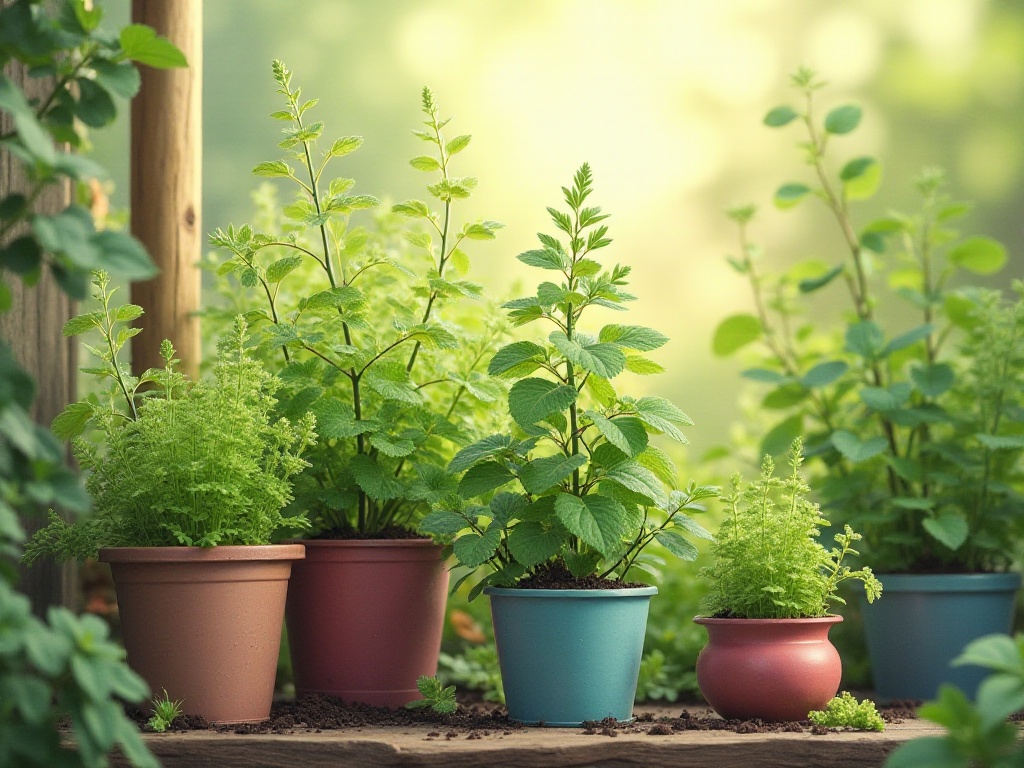
Being Eco-Friendly When Out
Portable Essentials
Now besides my wallet and phone, my bag's essentials include my "zero-waste trio": thermos, lunch box, and reusable utensils. At first, carrying these things felt a bit troublesome, but after getting used to it, I found them particularly practical.
My thermos is from a niche brand I found online, with just the right capacity and good heat retention. I used to use several paper cups a day at the office, now it's all solved with the thermos. During lunch breaks, while colleagues go to convenience stores for coffee, I make my own tea. Gradually, I've influenced several colleagues to start bringing their own water bottles.
I chose a stainless steel lunch box, which is lightweight, durable, and impact-resistant. I used to think bringing lunch was troublesome, but now I actually enjoy the process. Spending ten minutes preparing lunch every morning ensures healthy eating and avoids using takeout containers. I've also developed a habit of batch preparing ingredients on weekends, making weekday lunch preparation more convenient.
Recently, I added a set of folding utensils, including chopsticks, a spoon, and a straw. This set is only palm-sized when packed away, taking up virtually no space in my bag. After using this set, I no longer feel guilty about using plastic straws for drinks or disposable utensils for takeout.
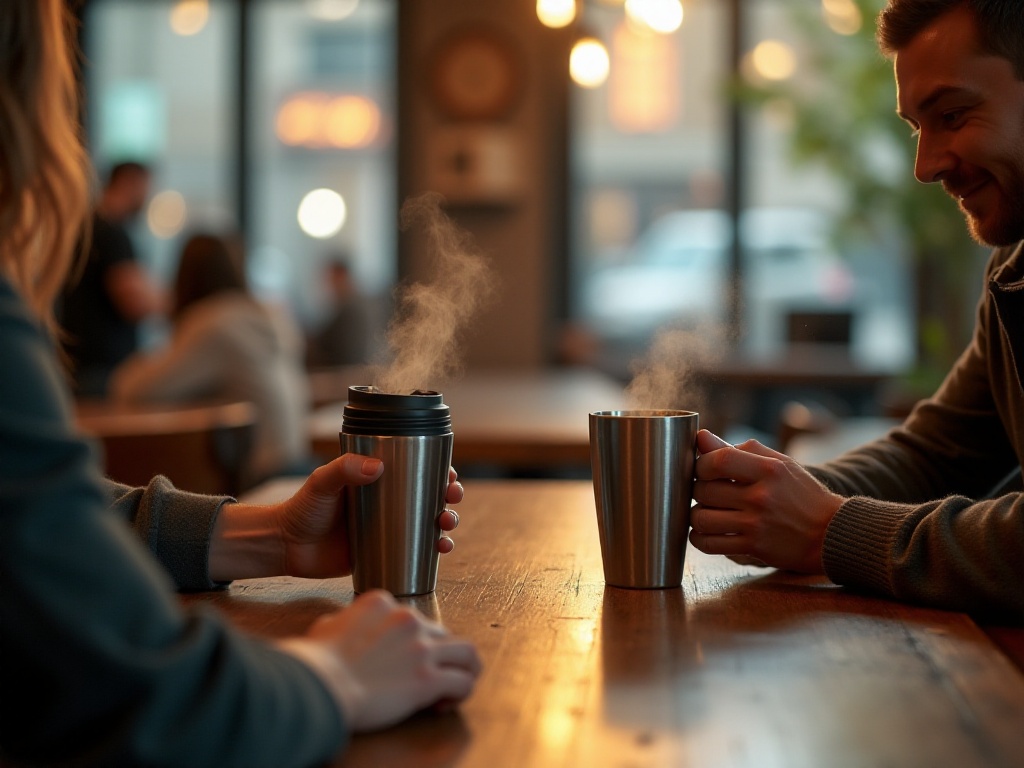
Drops Form Rivers
Besides these obvious changes, I'm practicing environmental protection in all aspects of life. For example, I now choose public transport or cycling for commuting, only taking taxis in special circumstances. Cycling to work is not only environmentally friendly but also provides exercise, achieving multiple benefits.
I'm also more mindful about water conservation. I turn off the tap while brushing teeth and washing face, and collect vegetable washing water for plants. I installed aerators on the faucets, which maintain water pressure while saving water.
These changes might seem small, but they add up to make a noticeable difference. Over six months, my household waste has decreased by nearly 80%. Previously, I had to take out the trash several times a week; now once a week is enough. Although it initially required some time and effort to change habits, seeing such results is really fulfilling.
Most importantly, through these changes, I feel my life has become more meaningful. Whenever I see news reports about environmental issues, I no longer feel they're distant matters, but rather feel that I'm genuinely contributing to protecting the Earth.
Actually, environmental protection doesn't require doing anything earth-shattering - starting with small things in life is enough. If everyone could change just a little bit, it would be a huge help for the Earth. Recently, I've noticed more and more friends starting to pay attention to environmental protection, and this power of change is truly moving.
This half-year zero-waste journey has taught me that an eco-friendly lifestyle isn't a sacrifice, but a better way of living. It not only makes our lives healthier and more environmentally friendly but also helps us save money. Most importantly, it makes us more responsible for our lives and kinder to the Earth.
I hope those who read this article can also start from themselves and join the environmental protection movement. I believe that as long as each of us makes an effort, we can definitely create a better future for the Earth.


